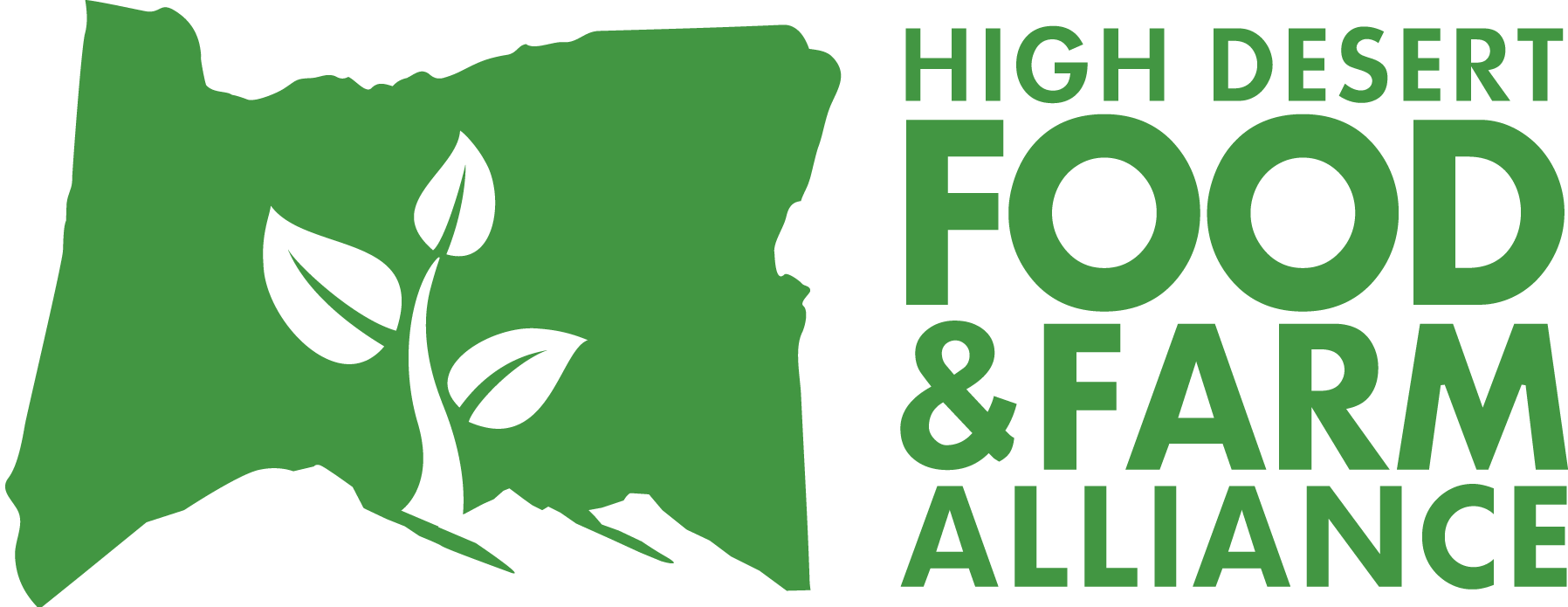The dynamic landscapes of Central Oregon are a draw for many people. We have created an identity of unbridled enthusiasm for the outdoors. For me, the deep inspiration drawn from winding rivers, Ponderosa Pines and the agricultural landscape is matched only by the inspiration incited by the kindness, generosity, grit and creativity of Central Oregon food producers. In many ways, we have them to thank for the open spaces we hold so dear. I believe we should care as much for our farmers and good food as we do the outdoors. After all, good food is the ultimate fuel for our outdoor adventures.
Food connects us. It’s not only foundational to our health, but also to our emotional vitality. I was reminded of this when I was recently stranded in airports for four days because of our wintery snow storm. I had to scavenge the airport cuisine – Starbucks coffee, peanuts and the questionably-caloric, sodium-enriched McDonald’s food. For those four days my food was not only nutritionally deficient, but also disassociated from its source. That detachment of food from its origins can take a toll beyond our physical health. Knowing the source of our food, having a clearer understanding of the network of relationships necessary to get food onto our plates, and sharing that food with others – these seemingly simple acts can immeasurably enrich our individual emotional health, sense of community, and collective empowerment.
Our growing Central Oregon community is strongest when we learn from and understand our neighbors, many of whom are farmers. We would all benefit from holding space to hear stories, and being receptive and open to hearing each other’s perspectives. When talking about land conservation efforts, we hear the adage that we don’t want to support and protect what we don’t know or understand. The same holds true for our agricultural producers.
We need dialogue to begin to have a deeper understanding of the dedication and work it takes to produce food. I know a few farmers who recently had a hoop house or greenhouse collapse due to heavy snow. They went out to clear the snow off of the top of their hoop houses several times through the wee hours of the morning and the structures still gave in to the weight of the snow. Ranchers are giving it their all to make sure they don’t loose animals when the mercury drops into the single digits – even going to such great lengths as to house piglets in their bathtubs. Farmers and ranchers wrestling our high desert climate are on-call 24/7. I hear many farmers say that they love their profession because of the lifestyle, but I can’t imagine that they get into the business because they relish waking up at 3am for the next bottle feeding. Many farmers I work with convey that they get a deep sense of enjoyment out of providing good, nourishing food for us, their community. These farmers’ dedication is as remarkable as their generosity.
Learning about food production will cultivate a collective appreciation for local nourishment and reinforce our community identity as one that is not only grateful for our natural spaces, but one that also recognizes the value of local agriculture. We would benefit from a greater appreciation of the profound impact that buying from local farmers and ranchers can have: for every $1 spent with a local farmer, 76 cents circulates in our local economy versus 28 cents for imported foods. As individuals we can positively impact our local food economy by eating seasonally-available food from high desert producers (skip the strawberries in February), cooking nourishing food with local ingredients, dedicating 10% of our food budget to purchasing high desert foods, and being more inquisitive when dining out by asking restaurants what ingredients they purchase from high desert farmers and ranchers.
At the High Desert Food & Farm Alliance (HDFFA), I have the great pleasure of encouraging and promoting local food. HDFFA is a local nonprofit dedicated to supporting a healthy and thriving food and farm network in Central Oregon through education, collaboration and inclusivity. HDFFA works to make information about local farmers, ranchers and food businesses easily accessible online and through our print directory of locally grown, raised and crafted foods. You can find more info at hdffa.org.
I encourage everyone to participate in staying curious, empathetic and developing a collective appreciation for local food – share your local food stories over a meal or with friends, neighbors or strangers. As a community, we’ve certainly made our appreciation of local landscapes known; now we have an opportunity to make our appreciation for local farmers heard as well.
Jess Weiland
Food & Farm Director for High Desert Food & Farm Alliance





